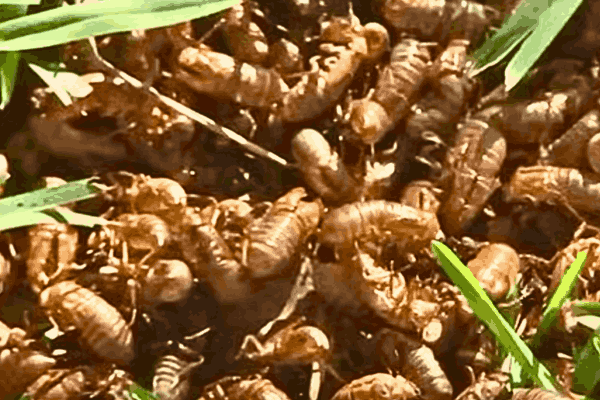CICADAS DESCENDING ON MIDWEST AND SOUTHEAST
Trillions of periodical Cicadas have emerged in a rare double event across the Midwest and Southeast regions of the United States, causing a cacophony of noise that has drawn complaints from local residents. This dual emergence, involving Brood XIII Cicada and Brood XIX Cicada, is the first time these two broods have emerged simultaneously since 1803, disrupting food chains and ecosystems in their wake.
Cicada – A Disruptive Feast for Predators and Wildlife
The emergence of trillions of Cicadas has thrown ecological food systems into disarray, providing a disruptive feast for predators and wildlife.
For predators, such as birds, the emergence is akin to an all-you-can-eat buffet, leading to significant diet shifts and population booms.
This disruption can cover vast areas, up to 190,000 square miles, causing a ripple effect down the food chain as generalist predators switch to feeding on the abundant Cicadas.
Impact of Cicada on Human Food Systems and Plant Life
While the Cicada emergence does not directly impact human food systems, it can lead to damage to trees caused by the egg-laying habits of female Cicadas.
The emergence also has indirect effects on plant life, as the disruption of the food chain can lead to unchecked populations of other insects, such as caterpillars, which can damage trees and vegetation.
Rare Opportunity for Scientists to Study Ecological Impacts
The dual emergence of Brood XIII and Brood XIX in 2024 offers a rare opportunity for scientists to study the ecological impacts of such events.
These emergence events, which last around five to seven weeks, provide a unique window into the effects of a large increase in resources over a short period of time.
Scientists are particularly interested in understanding the long-term effects of Cicada emergences on food webs and ecosystems.
Climate Change and the Future of Cicada Emergences
Climate change is expected to impact Cicada emergences in the future, with rising temperatures potentially leading to earlier emergences and an increase in oddly-timed emergences.
Scientists hope to collect more data on the effects of climate change on Cicadas and their food webs during these emergences, providing valuable insights into the adaptation of these insects to a warming climate.
The dual emergence of Brood XIII and Brood XIX in 2024 is a rare and significant event that offers valuable insights into the ecological impacts of Cicada emergences on food chains and ecosystems.
Scientists are eager to study these effects and understand how Cicadas and other species adapt to changing environmental conditions.
Also Read : New Mammogram Screening Guidelines




